With a landmark Supreme Court case on the horizon, transgender people and their families speak out about the freedoms at stake.
The “Freedom To Be” campaign shows transgender people and their families from across the country finding joy and community, grounded in the basic principle that we all deserve the freedom to control our own families, bodies, and lives.
In the last three years, politicians across the country have put themselves between transgender people, our families, and our doctors. This fall, the Supreme Court will hear from families and doctors challenging a state law banning hormone therapy for trans adolescents. For many trans youth, this medical care gives them the freedom to be who they really are.
The freedom to be loved, to be safe, to be trusted with decisions about our own health care. That’s what we are fighting for. Learn more below about our storytellers, their families, and how they are advocating for their freedom to be.
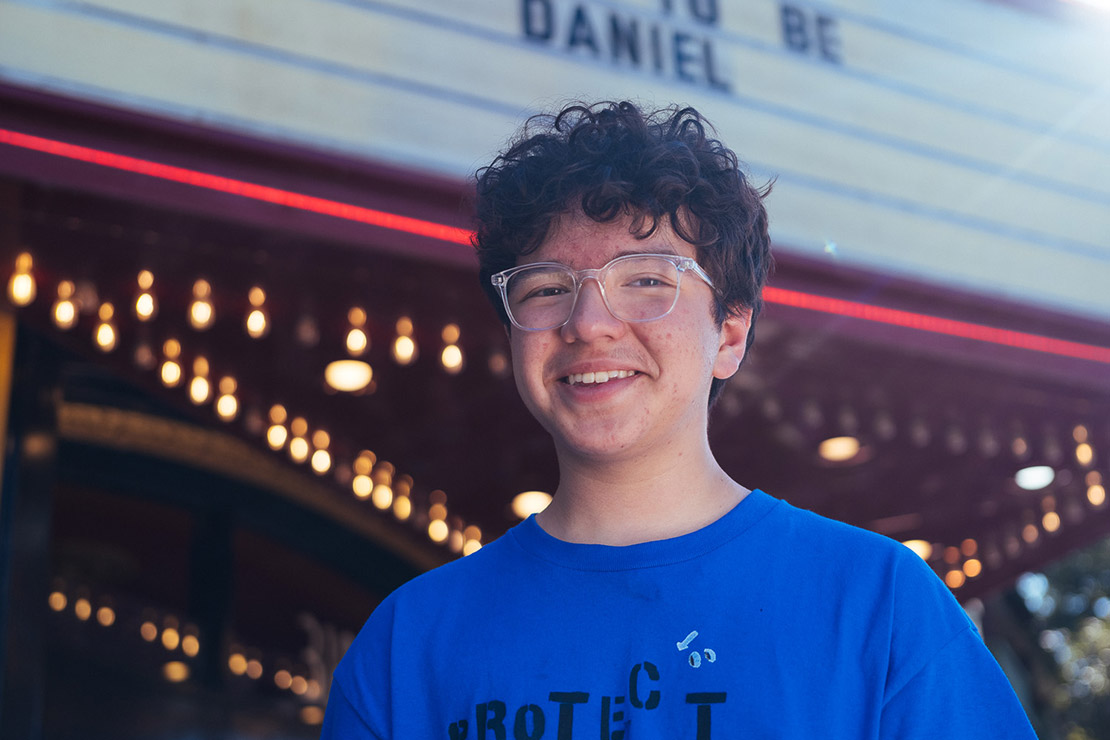
Freedom To Be: Daniel Trujillo (he/him)
Beyond being a tight-knit family, Lizette, Jose and Daniel Trujillo think of themselves as a team—they even call themselves the Three Musketeers.
It’s why when 15-year-old Daniel wanted to take action against the discrimination he faced from anti-trans legislation in his home state of Arizona, there was no question that his parents, Lizette and Jose, would stand beside him. In May 2023, Daniel teamed up with three other trans teens to organize the country’s first Trans Prom on the steps of the U.S. Capitol. “We wanted to make a place where you could celebrate who you were instead of having to be fearful,” Daniel says.
With the help of parents, community members, other trans activists and the ACLU, Daniel and his co-organizers were able to bring more than 50 trans and non-binary young people to the Capitol for an event that was as much a celebration as it was a protest. Most importantly, the Trans Prom was a chance to allow these kids the freedom to be exactly who they are. It’s what Lizette and Jose have wanted for Daniel his whole life. “All you want is for your child to love who they are fully,” Lizette says. “The trans prom was Daniel saying he loved himself fully and wanted to give that to other kids.”
It’s why when 15-year-old Daniel wanted to take action against the discrimination he faced from anti-trans legislation in his home state of Arizona, there was no question that his parents, Lizette and Jose, would stand beside him. In May 2023, Daniel teamed up with three other trans teens to organize the country’s first Trans Prom on the steps of the U.S. Capitol. “We wanted to make a place where you could celebrate who you were instead of having to be fearful,” Daniel says.
With the help of parents, community members, other trans activists and the ACLU, Daniel and his co-organizers were able to bring more than 50 trans and non-binary young people to the Capitol for an event that was as much a celebration as it was a protest. Most importantly, the Trans Prom was a chance to allow these kids the freedom to be exactly who they are. It’s what Lizette and Jose have wanted for Daniel his whole life. “All you want is for your child to love who they are fully,” Lizette says. “The trans prom was Daniel saying he loved himself fully and wanted to give that to other kids.”
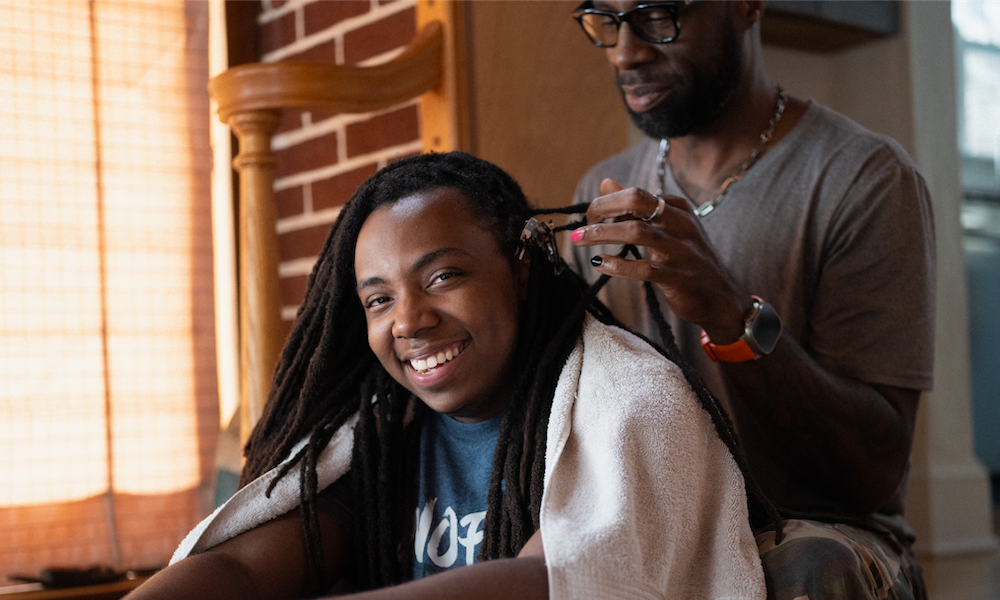
Freedom To Be: Hobbes Chukumba (he/him)
Eighteen-year-old Hobbes Chukumba describes his family as a warm sweater: “It's fuzzy, it's well-put together. But at the same time, you can tell that a lot of effort has been put into making exactly what it is today.
That effort is built on a foundation of love and trust, his father, Stephen, explains. When Hobbes came out to his father as trans several years ago, there wasn’t the slightest concern that the news would fray their bond. “I was like, ‘If this is who you are, I'm going to support you. I see you the way you see you,’” Stephen says.
Hobbes navigated high school in New Jersey with the support of his family and his broader community, but knew that so many other trans kids around the country didn’t get the same experience. Wanting to speak out about it, he banded together with three other teens to hold the first-ever Trans Prom on the National Mall in Washington, D.C. For Hobbes, it was a chance to build community, advocate for others, and to enjoy “the freedom to be as joyful as I can.”
That effort is built on a foundation of love and trust, his father, Stephen, explains. When Hobbes came out to his father as trans several years ago, there wasn’t the slightest concern that the news would fray their bond. “I was like, ‘If this is who you are, I'm going to support you. I see you the way you see you,’” Stephen says.
Hobbes navigated high school in New Jersey with the support of his family and his broader community, but knew that so many other trans kids around the country didn’t get the same experience. Wanting to speak out about it, he banded together with three other teens to hold the first-ever Trans Prom on the National Mall in Washington, D.C. For Hobbes, it was a chance to build community, advocate for others, and to enjoy “the freedom to be as joyful as I can.”
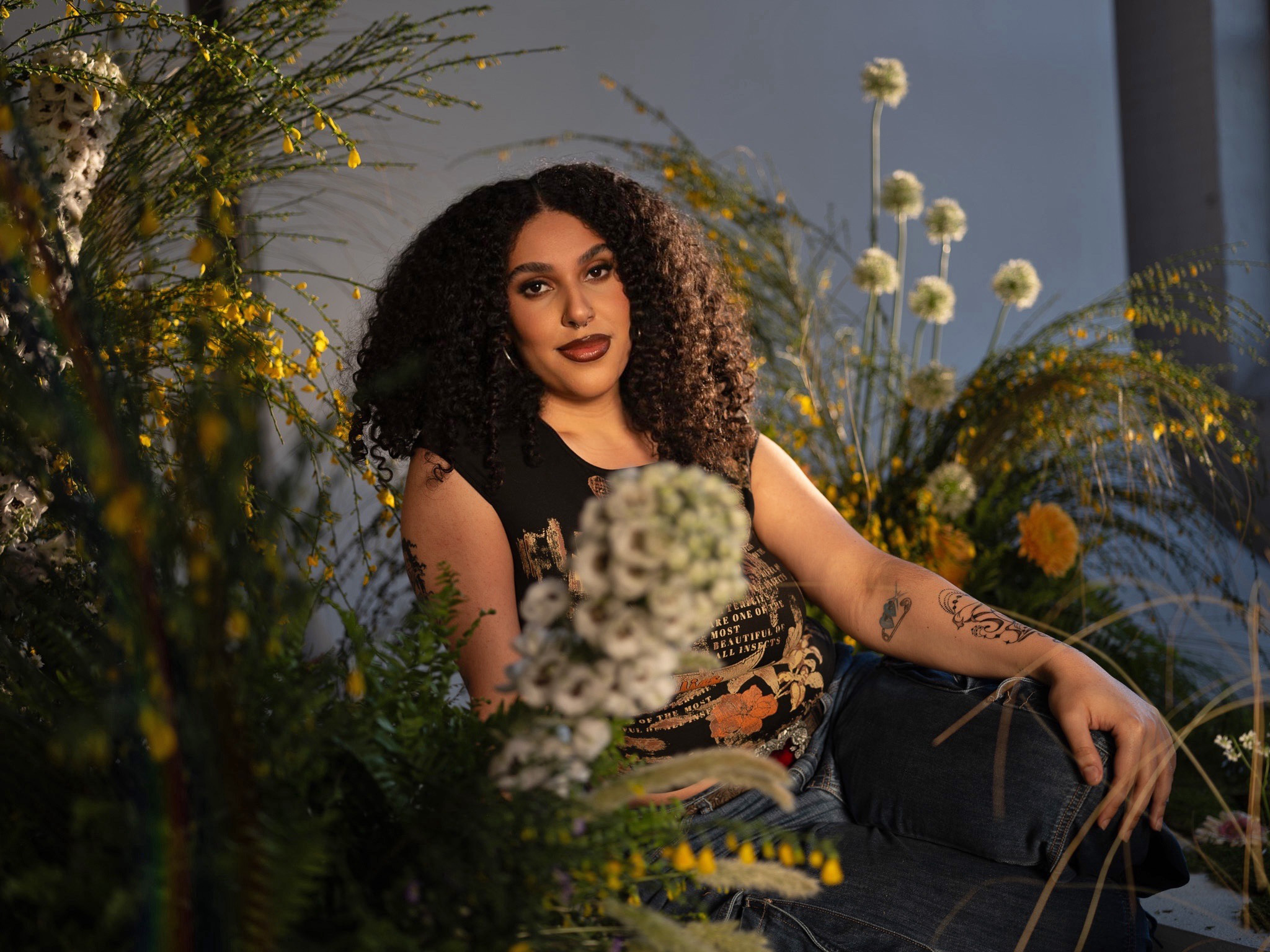
Freedom To Be: Sage Dolan Sandrino (she/her)
Sage Dolan-Sandrino has been an outspoken voice for trans rights for most of her young life, starting with the first op-ed she wrote for Teen Vogue at 16. Back then, she says, her primary aim was being visible as an Afro-Cuban queer woman. “I wanted the freedom to step outside and to be trans and to not be afraid,” she says.
Dolan-Sandrino is the founder of TEAM Mag, a creative studio and digital zine, and, during the Obama administration, served as an ambassador for The White House Initiative for Educational Excellence for African Americans. More recently, her dreams have expanded beyond merely being seen. For her, the freedom to be is being able to “ to laugh with my friends, with my loved ones, with my family,” Dolan-Sandrino says. “The freedom to express myself and the freedom to create is something that only occurs when all of the requirements that I need in order to thrive have been met.”
Dolan-Sandrino is the founder of TEAM Mag, a creative studio and digital zine, and, during the Obama administration, served as an ambassador for The White House Initiative for Educational Excellence for African Americans. More recently, her dreams have expanded beyond merely being seen. For her, the freedom to be is being able to “ to laugh with my friends, with my loved ones, with my family,” Dolan-Sandrino says. “The freedom to express myself and the freedom to create is something that only occurs when all of the requirements that I need in order to thrive have been met.”
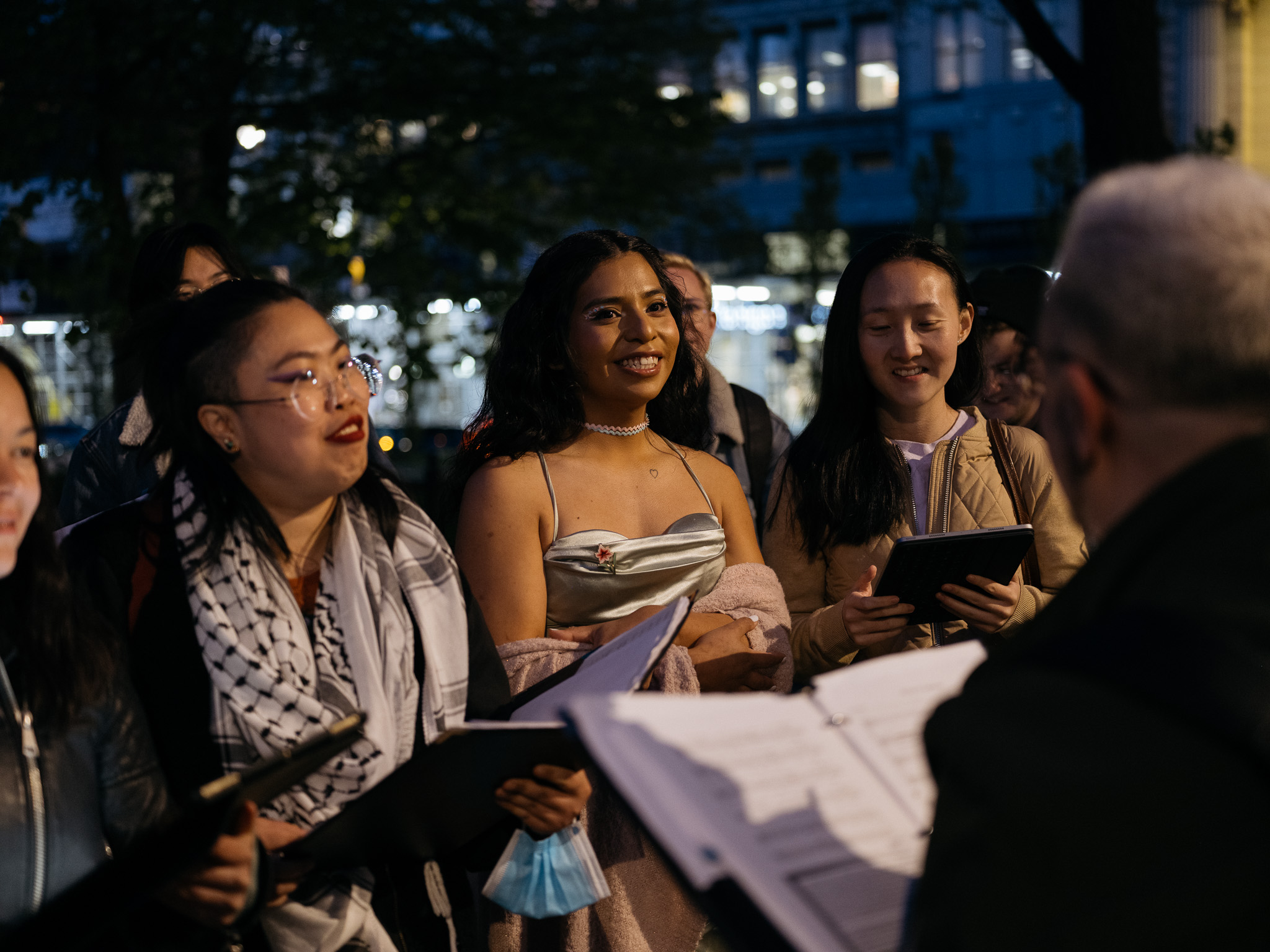
Freedom To Be: Elsy Juliet (she/her)
For Elsy, becoming the person she is now has meant reclaiming the power in her own voice. Before living as an out trans woman, her voice was her biggest insecurity, she says.
But, she learned over time that by speaking and singing out loud she could drown out the negative voices in her head. Now, whether it’s in person as a member of a choir, or online as a social media content creator, Elsy is using her words to build community and advocate for marginalized people. Elsy says that, for her, the freedom to be is the freedom “to use my voice; to take something that I was so scared of … and just turning it into something that can make an actual change, not only for me but like for the world.
But, she learned over time that by speaking and singing out loud she could drown out the negative voices in her head. Now, whether it’s in person as a member of a choir, or online as a social media content creator, Elsy is using her words to build community and advocate for marginalized people. Elsy says that, for her, the freedom to be is the freedom “to use my voice; to take something that I was so scared of … and just turning it into something that can make an actual change, not only for me but like for the world.
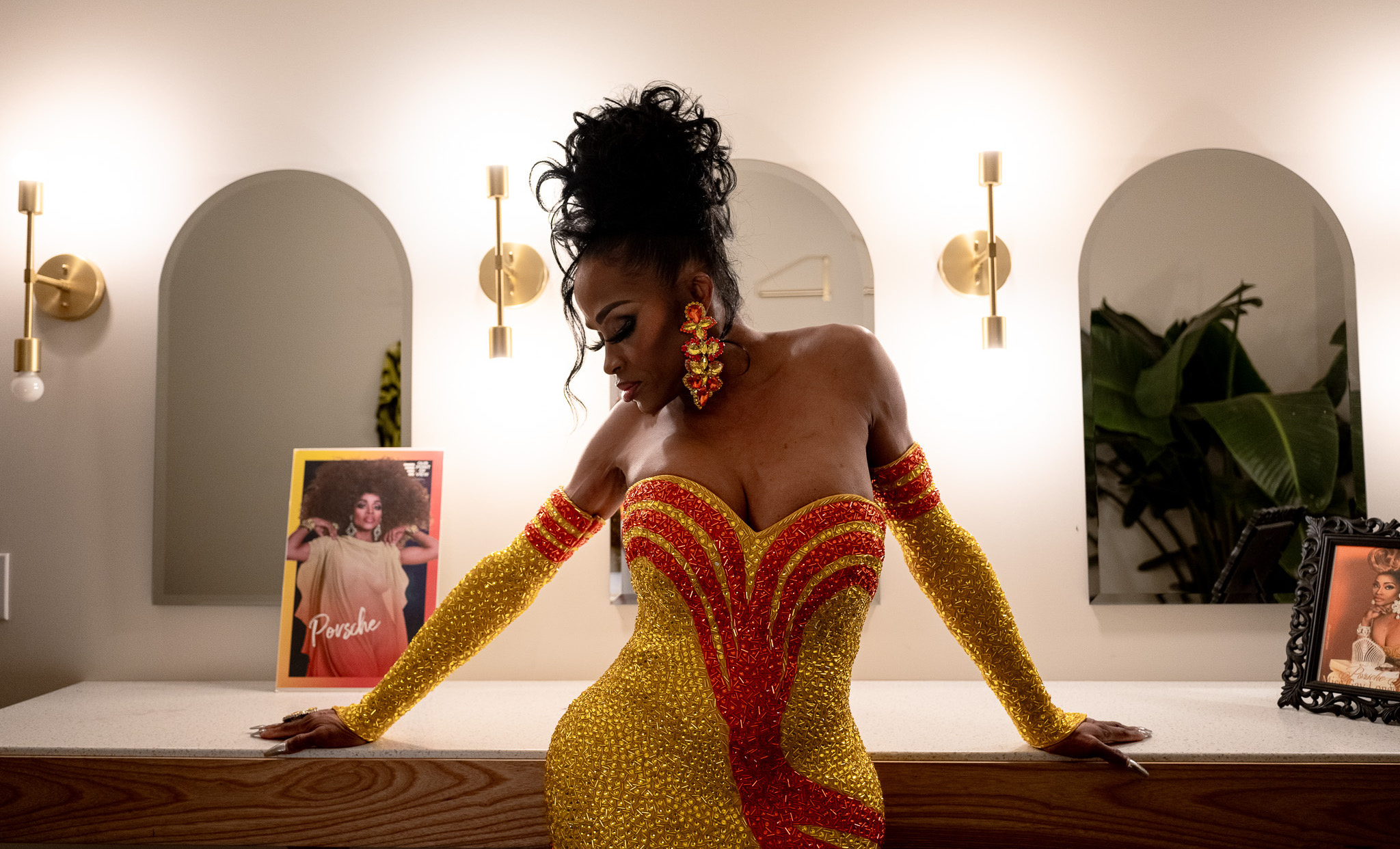
Freedom To Be: Porsche Paris (she/her)
Porsche is unapologetically in her contentment era. It’s the latest chapter in a life filled with jubilant highs and challenging lows, including leaving home at 15, spending time incarcerated, going on to win Miss Black America, and taking home numerous other titles and awards in the pageant scene.
Throughout all of it, Porsche has remained centered by holding true to her identity as a Black trans woman. She’s also been able to find creative self-expression — and a living — through drag performance. “When you walk around that curtain, you can be anything you want,” Porsche says. “It gives you power for those four minutes you’re up there.”
Today, Porsche is dismayed to see drag bans sweeping the country. “Drag is not hurting nobody,” she says. Drag bans are just another way for politicians to police freedom of expression, Porsche says. But even in the face of such censorship, Porsche is choosing to practice her art and pursue the freedom to be exactly as she is. “Freedom to be Porsche is to be authentically me,” she says.
Throughout all of it, Porsche has remained centered by holding true to her identity as a Black trans woman. She’s also been able to find creative self-expression — and a living — through drag performance. “When you walk around that curtain, you can be anything you want,” Porsche says. “It gives you power for those four minutes you’re up there.”
Today, Porsche is dismayed to see drag bans sweeping the country. “Drag is not hurting nobody,” she says. Drag bans are just another way for politicians to police freedom of expression, Porsche says. But even in the face of such censorship, Porsche is choosing to practice her art and pursue the freedom to be exactly as she is. “Freedom to be Porsche is to be authentically me,” she says.
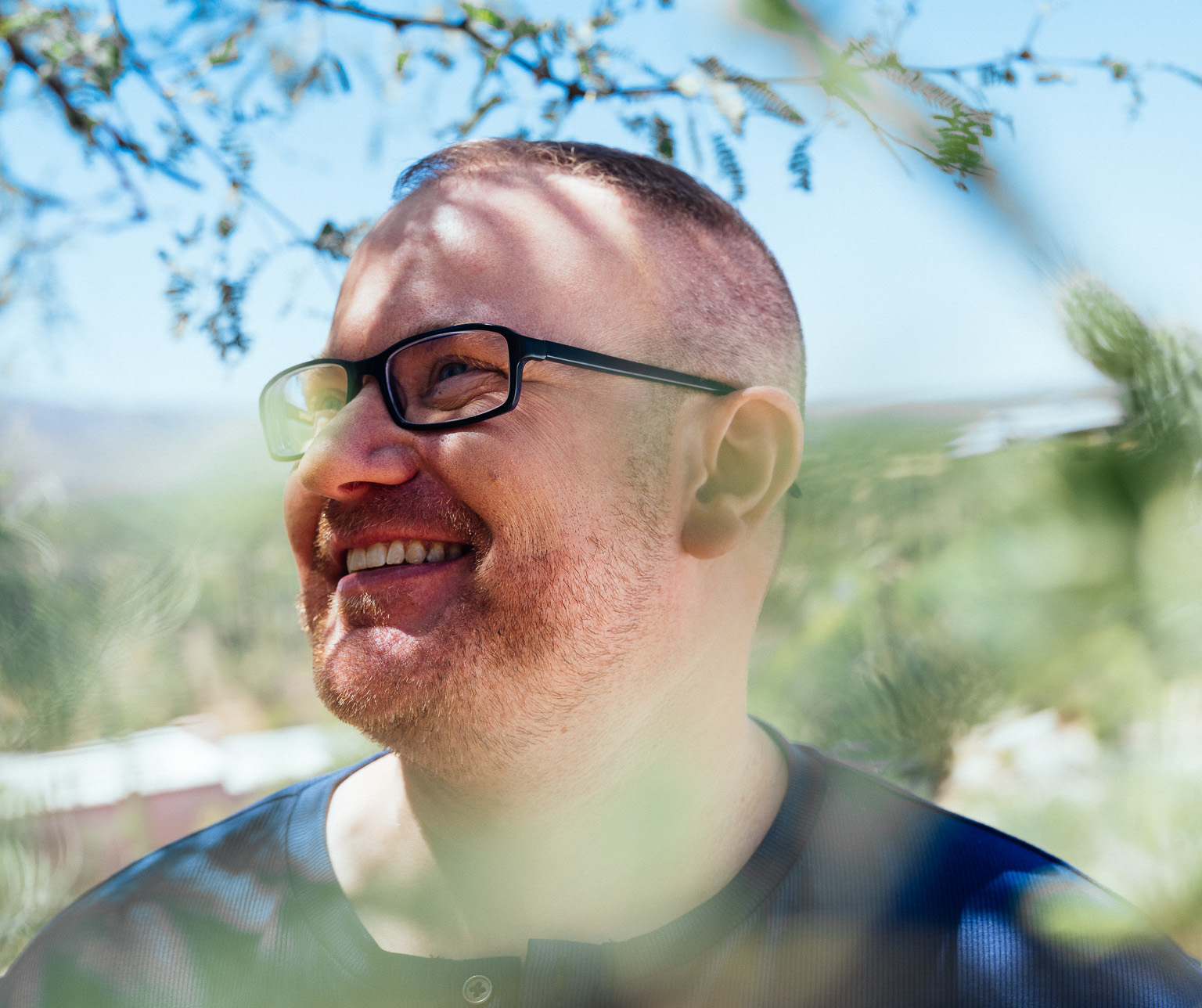
Freedom To Be: Dr. Russell Toomey (he/him)
Growing as a trans person in a religious area of rural Appalachia, he never felt at home in a place where differences weren’t tolerated.
It wasn’t until he arrived in Tucson, Arizona to pursue his PhD at the University of Arizona, later joining the university as a professor of family and human development, did Toomey begin to feel the freedom of belonging. He was devastated, however, when he discovered that the university’s health insurance discriminated against him and other trans employees by not covering gender-affirming care. Once again, he was made to feel othered.
Toomey decided to fight for equality in healthcare and filed a class-action lawsuit against the state of Arizona demanding equal treatment in health care. They won when Arizona Governor Katie Hobbes signed an executive order ending the ban on gender-affirming care for trans state employees. For Toomey, the freedom to be means getting to live now as his full self — especially when he’s in nature. “When I'm in nature, there's nobody there judging me,” Toomey says. “The mountains don't judge me. The wildlife that's around me isn't judging me...I can just be.”
It wasn’t until he arrived in Tucson, Arizona to pursue his PhD at the University of Arizona, later joining the university as a professor of family and human development, did Toomey begin to feel the freedom of belonging. He was devastated, however, when he discovered that the university’s health insurance discriminated against him and other trans employees by not covering gender-affirming care. Once again, he was made to feel othered.
Toomey decided to fight for equality in healthcare and filed a class-action lawsuit against the state of Arizona demanding equal treatment in health care. They won when Arizona Governor Katie Hobbes signed an executive order ending the ban on gender-affirming care for trans state employees. For Toomey, the freedom to be means getting to live now as his full self — especially when he’s in nature. “When I'm in nature, there's nobody there judging me,” Toomey says. “The mountains don't judge me. The wildlife that's around me isn't judging me...I can just be.”
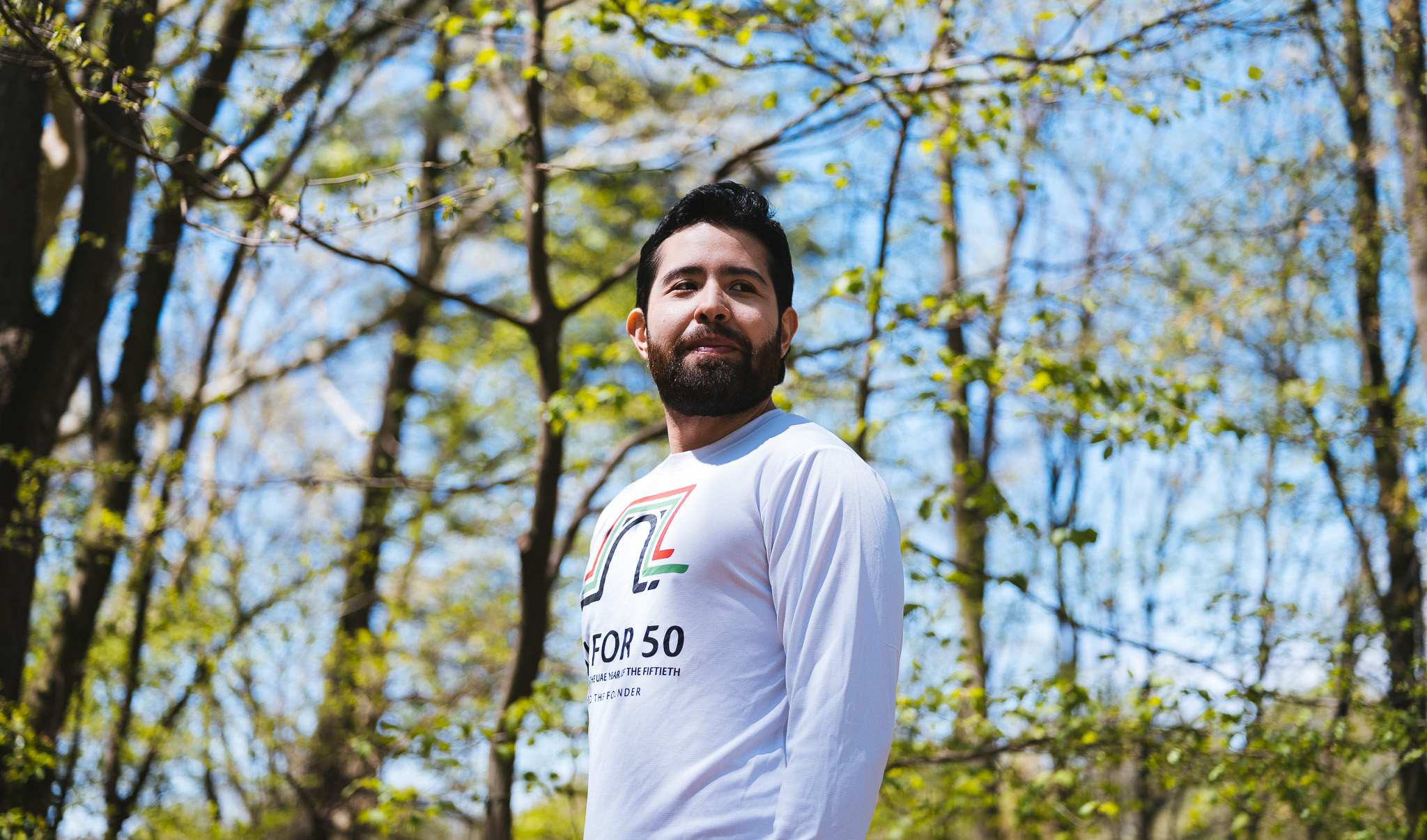
Freedom To Be: Rey Resendez (they/he/she)
Movement is how Rey Resendez exercises bodily autonomy. As an Indigenous Latine, trans, 2Spirit educator and community organizer, they are all too familiar with the ways that non-conforming bodies like theirs are policed in society at large. But to anyone who would police their trans body, they say, “I appreciate the concern, but it is my body and ultimately my choice. Mind your business— period.”
After beginning their career as a program coordinator at Gay Men's Health Crisis, managing their transgender program (Project Transcend) and planning events for the community, today Rey is a facilitator and consultant for workplace inclusion at various companies and nonprofits. It’s a labor of love and advocacy that can be mentally and spiritually taxing. Rey relies on movement and meditation as forms of self-care. “Without taking care of myself, I won't be able to pour into my community,” they explain. “The freedom to be authentic for me means that I am able to live my truth without boundaries, without limits.”
After beginning their career as a program coordinator at Gay Men's Health Crisis, managing their transgender program (Project Transcend) and planning events for the community, today Rey is a facilitator and consultant for workplace inclusion at various companies and nonprofits. It’s a labor of love and advocacy that can be mentally and spiritually taxing. Rey relies on movement and meditation as forms of self-care. “Without taking care of myself, I won't be able to pour into my community,” they explain. “The freedom to be authentic for me means that I am able to live my truth without boundaries, without limits.”
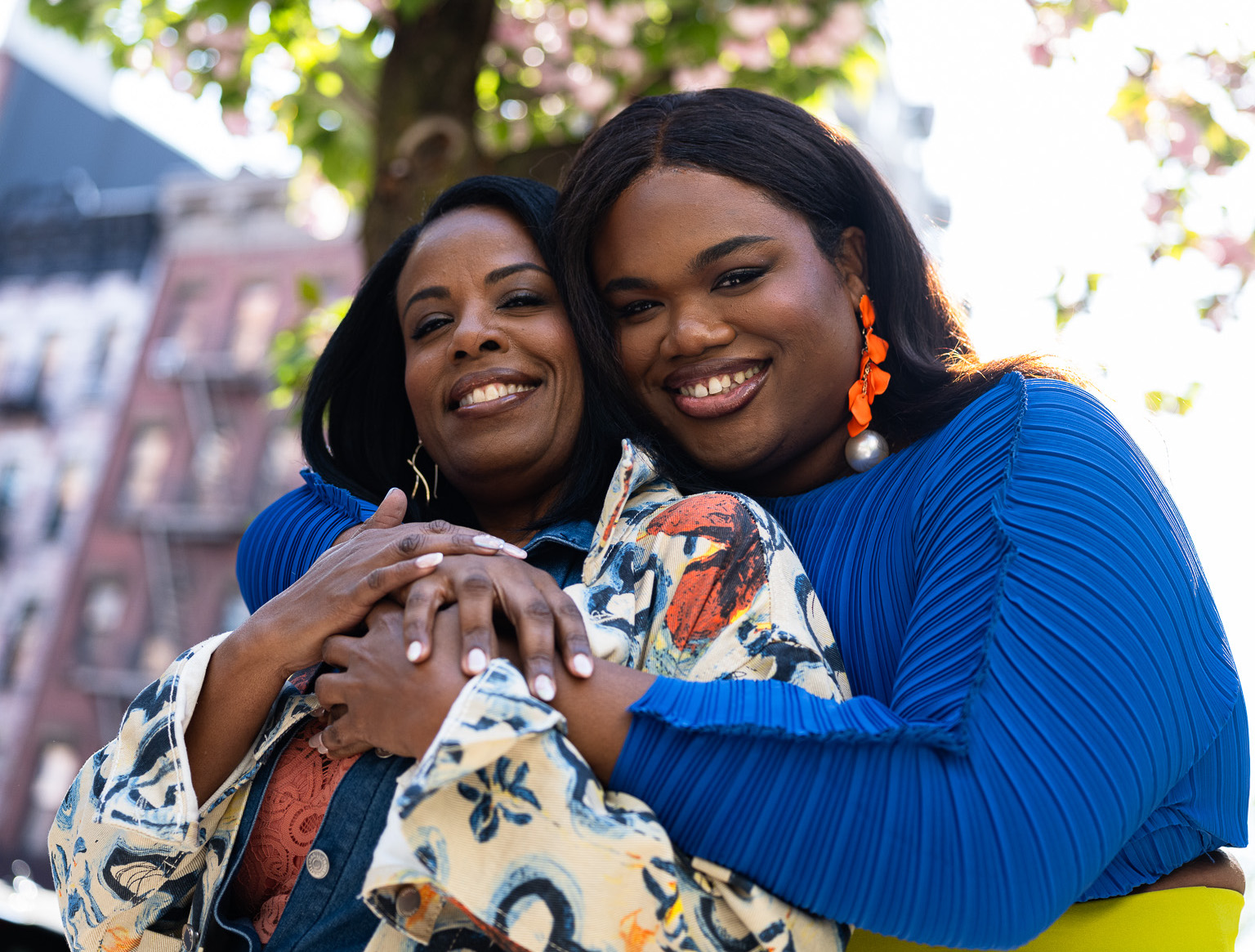
Freedom To Be: Jari Jones (she/her)
As a Black trans woman, Jari Jones knows how important it is to be loving and loved by the trans community. “Everybody, I think, has benefited from a black trans woman at one point in time,” she says.
Uplifting and celebrating the stories and images of Black trans women has been the driving force of her work as a writer, model, actor, and activist. She was the first Black trans woman to star in a film at the Cannes Film Festival in 2019, and has modeled for fashion brands like Calvin Klein and Chromat. Writing for Out Magazine, The New York Times and others, Jari has called for better treatment of girls like her, and for queer people more broadly. As powerful an advocate as Jones is, always ready to get in front of the camera to make change, she is sustained by the support and caretaking of others. The freedom to be truly herself, Jari says, “looks like being held by many. It looks like being protected without hesitation. It looks like going the extra mile for myself, but also for just black trans women in general.”
Uplifting and celebrating the stories and images of Black trans women has been the driving force of her work as a writer, model, actor, and activist. She was the first Black trans woman to star in a film at the Cannes Film Festival in 2019, and has modeled for fashion brands like Calvin Klein and Chromat. Writing for Out Magazine, The New York Times and others, Jari has called for better treatment of girls like her, and for queer people more broadly. As powerful an advocate as Jones is, always ready to get in front of the camera to make change, she is sustained by the support and caretaking of others. The freedom to be truly herself, Jari says, “looks like being held by many. It looks like being protected without hesitation. It looks like going the extra mile for myself, but also for just black trans women in general.”
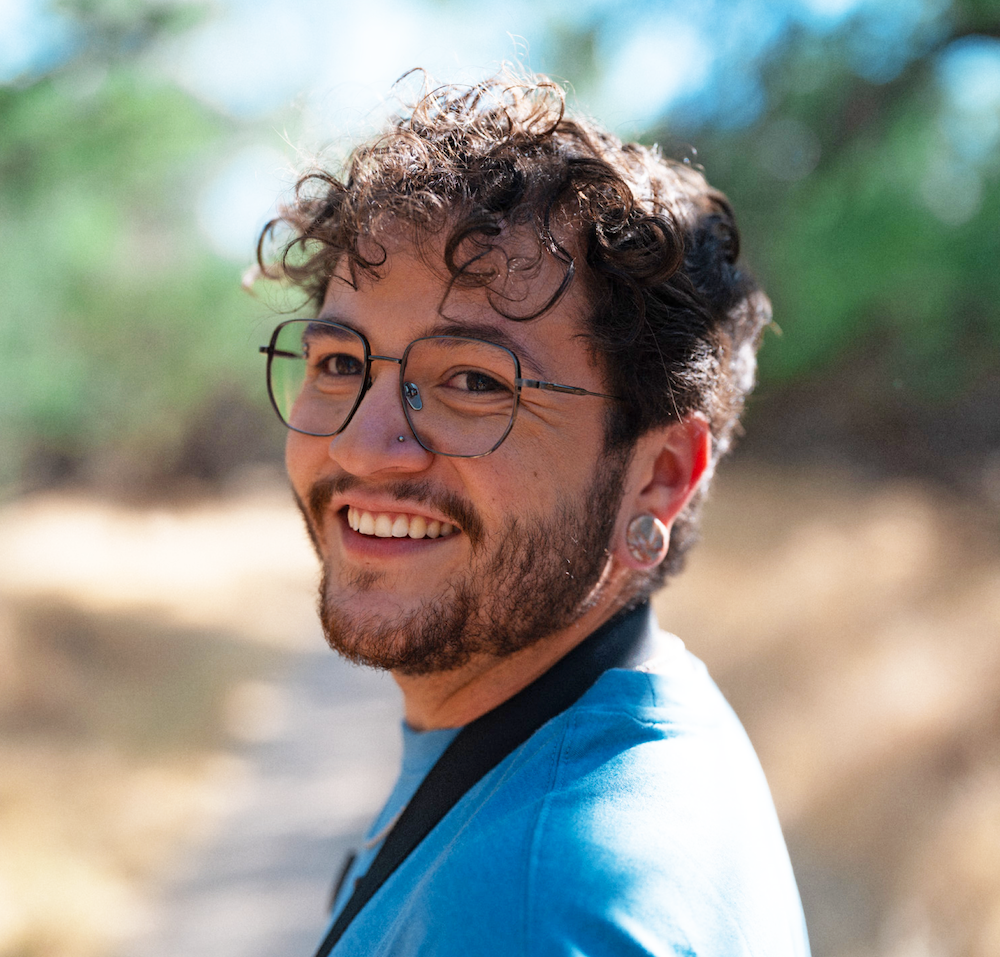
Freedom To Be: Alexander Brodie Switzer (he/him)
The first time Alexander Brodie Switzer met a trans person was at the Gay-Straight Alliance at his high school. For Alexander, that first encounter was what allowed him to realize that he was trans. “I was like, oh my goodness. That’s what it is,” he recalls. Until that point, he’d never known anyone – let alone anyone older and more established – who’d shared his lived experiences.
Alexander began receiving gender-affirming care, including hormone therapy, when he was 17. For the first time in his life, he was excited. Rather than living in daydreams where one day he would be able to live as his true self, “I knew it was going to happen,” he explains. To help others have that same sense of actualization, Alexander founded Valid USA, which offers free chest binders, packers, and feminine shaping undergarments to transgender and gender-diverse youth up to the age of 24. Amid rampant attacks on gender-affirming care, Alexander has seen first-hand how impactful these resources are for young people, and is grateful that he can serve as a role model of what an adult life can look like as a trans person. The ability to represent a better future is what gives Alexander the freedom to be who he is. “Being able to grow up and live a safe and healthy life where I don't have fears, where I can do the same thing that all my cis friends do … That means in some way I made it,” he says.
Alexander began receiving gender-affirming care, including hormone therapy, when he was 17. For the first time in his life, he was excited. Rather than living in daydreams where one day he would be able to live as his true self, “I knew it was going to happen,” he explains. To help others have that same sense of actualization, Alexander founded Valid USA, which offers free chest binders, packers, and feminine shaping undergarments to transgender and gender-diverse youth up to the age of 24. Amid rampant attacks on gender-affirming care, Alexander has seen first-hand how impactful these resources are for young people, and is grateful that he can serve as a role model of what an adult life can look like as a trans person. The ability to represent a better future is what gives Alexander the freedom to be who he is. “Being able to grow up and live a safe and healthy life where I don't have fears, where I can do the same thing that all my cis friends do … That means in some way I made it,” he says.
Learn More About the Issues on This Page
Related Content
-
Press ReleaseDec 2024

LGBTQ Rights
President Biden Must Veto Defense Bill Attacking Military Families with Transgender YouthPresident Biden Must Veto Defense Bill Attacking Military Families with Transgender Youth
WASHINGTON — The U.S. Senate today passed a version of the National Defense Authorization Act that would ban coverage for gender-affirming care for transgender youth whose parents are active-duty military personnel. The American Civil Liberties Union is opposing final passage of the defense bill over the inclusion of this health care ban and calling on President Joe Biden to veto the bill. Section 708 of the NDAA would prohibit insurance coverage for “medical interventions for the treatment of gender dysphoria” such as hormone therapy and puberty-suppressant medications, which Speaker Mike Johnson says would “permanently ban transgender medical treatment for minors.” The same treatments would be covered by TRICARE for any medical purpose other than treating gender dysphoria, the clinical diagnosis for the psychological distress experienced by transgender people related to their gender identity. “By passing this bill, the House and Senate are forcing thousands of active-duty service members to choose between their careers in the military and the future of their transgender children,” said Mike Zamore, national director of policy & government affairs at the ACLU. “This unconscionable and unjustifiable attack on those families stands in direct contrast to President Joe Biden’s legacy of defending the civil rights of transgender Americans — including when few in his own party showed the courage to do so. President Biden should cement his legacy by vetoing this bill and sending it back to Congress to pass without Speaker Johnson’s last minute health care ban for servicemembers’ kids.” If signed by President Biden, this health care ban would be the first new anti-LGBTQ provision enacted by Congress and signed into law by the president since the enactment of the military’s since-repealed “Don’t Ask, Don’t Tell” policy for LGBTQ servicemembers and the since-repealed federal law barring recognition of same-sex marriages known as the Defense of Marriage Act. It is unknown how many transgender youth are currently enrolled in TRICARE or how many of those enrolled are currently receiving coverage for gender-affirming care. In one 2022 analysis, 2,500 minor patients sought care for gender dysphoria through TRICARE Prime insurance at military or civilian treatment facilities in 2017, and 900 received puberty suppressants or gender-affirming hormones. Earlier this month, the Supreme Court heard oral arguments in a landmark case brought by the ACLU, the ACLU of Tennessee, Lambda Legal, and Akin Gump on behalf of three families and a medical provider challenging a Tennessee ban on gender-affirming hormonal therapies for transgender youth on the grounds the ban violates the Equal Protection Clause of the U.S. Constitution. -
Press ReleaseDec 2024

LGBTQ Rights
Montana Court Blocks State From Refusing to Correct Sex Markers on Transgender People's Birth Certificates and Driver's LicensesMontana Court Blocks State From Refusing to Correct Sex Markers on Transgender People's Birth Certificates and Driver's Licenses
HELENA, Mont. – A Montana court has granted a preliminary injunction preventing the state of Montana from enforcing policies that bar transgender people from obtaining accurate sex designations on their birth certificates and driver’s licenses. After a prior restriction on amendments of birth certificates was struck down by the courts, in early 2024 the state of Montana enacted a new rule that categorically bars transgender Montanans from correcting the sex designation on their birth certificates. Around the same time, the Montana Department of Justice adopted a policy similarly restricting amendment of driver’s licenses. The plaintiffs challenged these policies in state district court, arguing that they violate various constitutional provisions, including the right to equal protection of the law. In a recent Montana Supreme Court decision, two justices concluded that discrimination on the basis of transgender status – as the state is engaging in here – is a form of sex discrimination that violates the Montana Constitution’s equal protection clause. The plaintiffs, two transgender women, are represented by the American Civil Liberties Union, the ACLU of Montana, and Nixon Peabody LLP. Plaintiff Jessica Kalarchik, a veteran who served in the United States Army for 31 years, said: “After finally being able to live my life openly as the woman I know myself to be, I am frustrated that my birth state, Montana, wants me to carry around a birth certificate that incorrectly lists my sex as male. I live my life openly as a woman, I am treated as a woman in my daily life, and there is no reason I should be forced to carry a birth certificate that incorrectly identifies me as male. Fortunately, the court agrees that this ridiculous policy should not be in effect.” “Once again the State of Montana chose to adopt a draconian policy that is clearly intended to marginalize transgender Montanans, only for that discriminatory action to be blocked by the courts,” said Akilah Deernose, executive director for the ACLU of Montana. “Here in Montana we treasure our right to privacy and to live our lives free from governmental intrusion. The State of Montana clearly has not learned any lessons from the past few years, where courts have repeatedly struck down unconstitutional laws targeting transgender Montanans.” “Forcing anyone to carry documents that contradict their identity unjustly violates their rights to privacy, equal treatment, and not being compelled to convey a government message about their sex that they disagree with,” said Malita Picasso, staff attorney for the ACLU’s LGBTQ & HIV Project. “Such a policy marks transgender people for further mistreatment and discrimination, essentially requiring them to carry papers that out them as transgender any time they need to provide identity documents. Fortunately, the court has refused to allow the state of Montana to subvert the freedom of transgender Montanans to control their own identity as this case goes forward.” In granting the plaintiffs’ motion for a preliminary injunction, the court held, “[i]f the challenged state actions discriminate against transgender individuals on the basis of their transgender status, they also necessarily discriminate the basis of sex.” The state has the option of appealing the district court’s ruling to the Montana Supreme Court, but the underlying case will proceed in district court. A trial has not yet been scheduled.Court Case: Kalarchik v. MontanaAffiliate: Montana -
FloridaDec 2024

LGBTQ Rights
Keohane v. DixonKeohane v. Dixon
On September 30, 2024, the Florida Department of Corrections rescinded its policy regarding treatment of gender dysphoria, which allowed for hormone therapy when deemed medically necessary, as well as access to clothing and grooming standards that accord with one’s gender identity. Under this new policy, grooming and clothing accommodations have been stripped away, and hormone therapy is not permitted unless an exception is deemed constitutionally required. The ACLU brought a class action challenging the policy.Status: Ongoing -
IdahoDec 2024

LGBTQ Rights
Robinson v. LabradorRobinson v. Labrador
Two incarcerated transgender women have sued the state of Idaho alleging that HB 688, a 2024 law barring state funding for gender-affirming medical care for transgender people, denies them access to the health care their doctors have prescribed for them and is a violation of their Eighth Amendment right to be free from cruel and unusual punishment. They represent a class of all incarcerated folks within the state of Idaho who face the loss of hormone therapy due to HB 668.Status: Ongoing